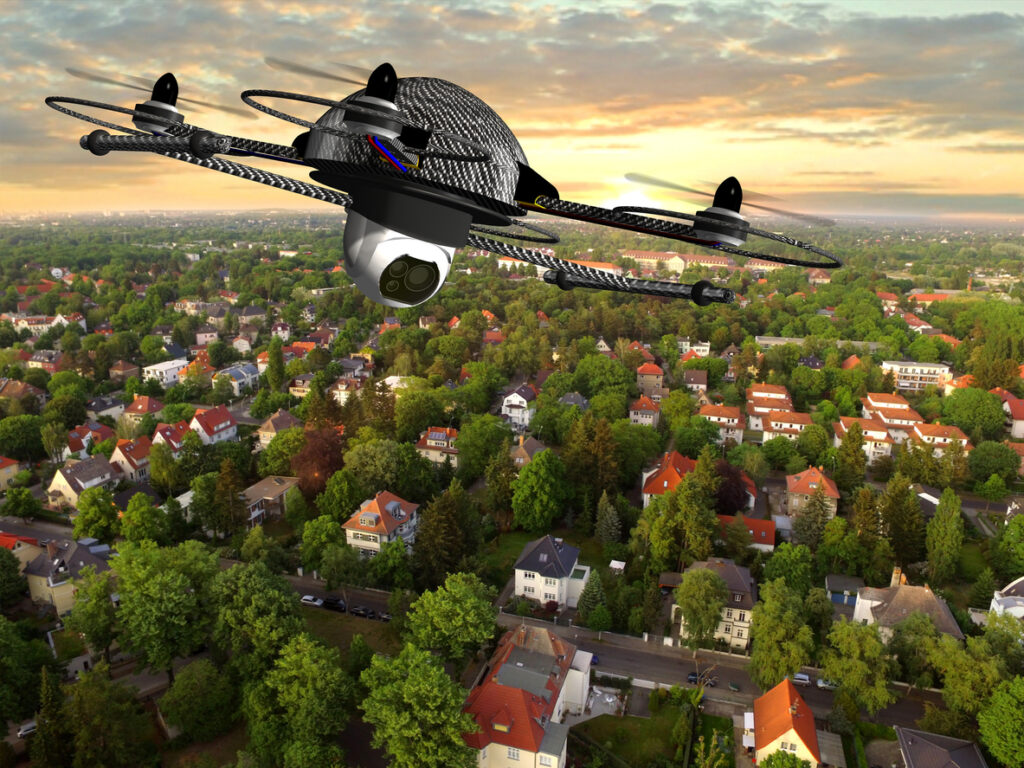Norden Leacox Accident & Injury Law | July 7, 2025 | Orlando Personal Injury Blog

Drones have become a common sight in Florida skies, whether for photography, recreation, or commercial use. However, just because drones are easy to buy and operate doesn’t mean you can fly them anywhere or for any purpose.
In Florida, lawmakers have placed clear limits on drone use, especially when it comes to protecting the privacy of others. Under state law, using a drone to capture images of private property or individuals without permission could be considered a violation of someone’s privacy rights.
The rules are especially strict when drones are used near homes, fenced yards, or other areas where people expect to be left alone. If you’re flying a drone in Florida, it’s essential to know how the law works and what kind of behavior could get you into legal trouble.
Florida’s Ban on Surveillance Without Consent
In 2015, Florida passed legislation aimed at protecting people from unwanted drone surveillance. The law, known as the Freedom from Unwarranted Surveillance Act, prohibits the use of drones to record or photograph private property without written consent. This includes homes, backyards, or other places not visible to the general public from the ground.
The law doesn’t just apply to government agencies or law enforcement. It also applies to private citizens, businesses, and even hobbyists. If a drone captures images of someone on their private property without permission (and that person had a reasonable expectation of privacy), the operator could be liable.
These rules are taken seriously. Even if a drone is being flown for fun, using it to peek into someone’s backyard, window, or enclosed space may lead to civil lawsuits or other penalties.
What Counts as a Reasonable Expectation of Privacy?
A key part of Florida’s drone law focuses on whether a person had a reasonable expectation of privacy at the time the images were taken. Generally, the law protects people in areas where they are not visible from the street or other public spaces.
For example, if someone is sunbathing in a fenced backyard or spending time on their private balcony, they are likely protected by the statute.
The law also protects against more than just photos or videos. Any type of data collection (including audio recordings or thermal imaging) could fall under the law if it invades private space without consent.
Are There Exceptions for Certain Drone Uses?
Florida’s law includes a few exceptions for drone use in specific situations. For example, utility companies, licensed real estate professionals, and certain government agencies may be allowed to use drones for approved purposes, such as inspecting property or conducting official business.
However, these exceptions are narrow, and they don’t give people unlimited freedom to record others. It’s important to remember that even if you think you have a valid reason to fly your drone, it does not override someone’s right to privacy.
If you’re unsure, it’s always better to get permission before capturing images of another person’s property.
What Happens if You Violate the Law?
If you break Florida’s drone privacy laws, you could face a civil lawsuit from the person whose privacy was invaded. The law allows the victim to seek damages, including court costs and attorney’s fees. In rare cases, courts may also award punitive damages if the violation was intentional or especially reckless.
Even one mistake could lead to a costly legal problem. That’s why it’s important for drone operators to follow the rules closely and fly responsibly.
Know the Rules Before You Take Flight
Florida’s drone laws are designed to balance modern technology with personal privacy. Flying a drone can be a fun and useful activity, but it comes with serious responsibilities. If you plan to fly a drone anywhere near private property, make sure you understand the law and respect people’s space. Doing so will help you avoid legal issues and fly with confidence.
Contact an Orlando Personal Injury Lawyer at Norden Leacox Accident & Injury Law Today
For more information, please contact a personal injury lawyer at Norden Leacox Accident & Injury Law to schedule a free consultation. We have five convenient locations in Florida, including Orlando, Palm Bay, Melbourne, Cocoa, and Titusville.
Norden Leacox Accident & Injury Law – Orlando, FL Office
633 E Colonial Dr
Orlando, FL 32803
Phone: (407) 801-3000
Hours: Open 24/7
Our firm is located near you. We have an office in Orlando, FL.
Find us with our GeoCoordinates: 28.5534238,-81.3692001
Norden Leacox Accident & Injury Law – Palm Bay, FL Office
4620 Lipscomb Street N.E Suite #3K
Palm Bay, FL 32905
Phone: (321) 677-5964
Hours: Open 24/7
Our firm is located near you. We have an office in Palm Bay, FL.
Find us with our GeoCoordinates: 28.039083,-80.6083109
Norden Leacox Accident & Injury Law – Melbourne, FL Office
1600 W Eau Gallie Blvd #205j
Melbourne, FL 32935
Phone: (321) 450-7134
Hours: Open 24/7
Our firm is located near you. We have an office in Melbourne, FL.
Find us with our GeoCoordinates: 28.1289147,-80.6461588
Norden Leacox Accident & Injury Law – Cocoa, FL Office
717 S Cocoa Blvd STE 203
Cocoa, FL 32922
Phone: (321) 449-8042
Hours: Open 24/7
Our firm is located near you. We have an office in Cocoa, FL.
Find us with our GeoCoordinates: 28.3511613,-80.7312948
Norden Leacox Accident & Injury Law – Titusville, FL Office
4527 S Hopkins Ave Suite B
Titusville, FL 32780
Phone: (407) 801-3000
Hours: Open 24/7
Our firm is located near you. We have an office in Titusville, FL.
Find us with our GeoCoordinates:28.5584923,-80.8010051
